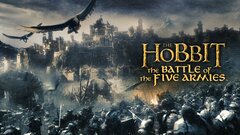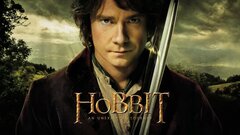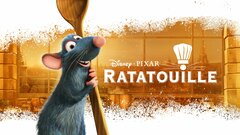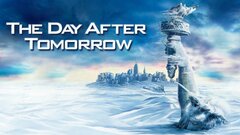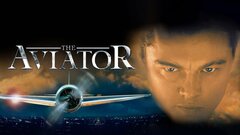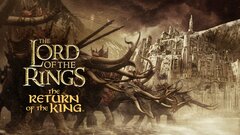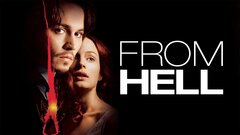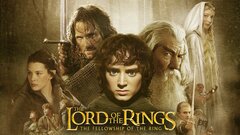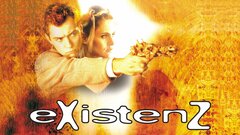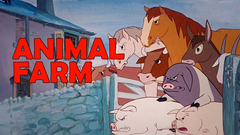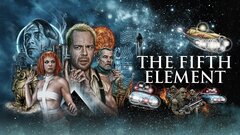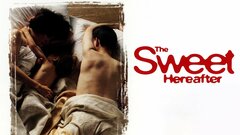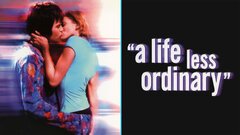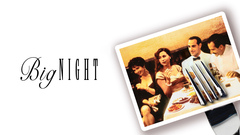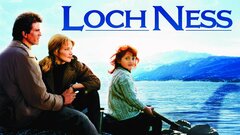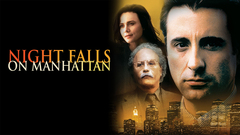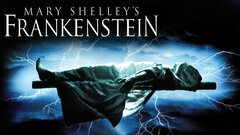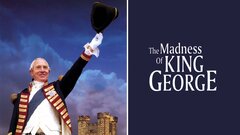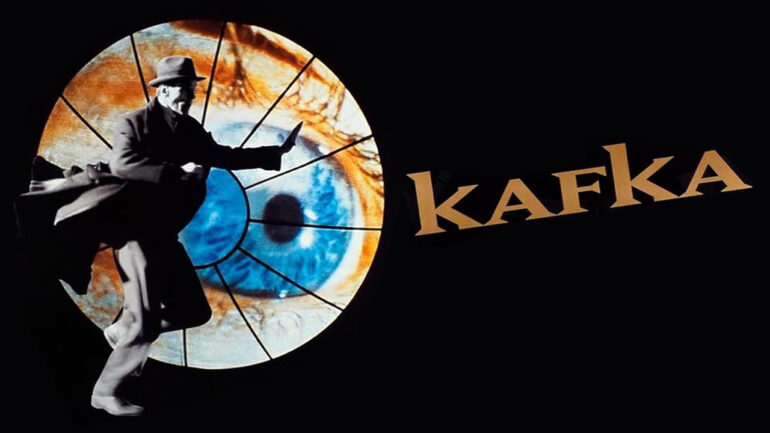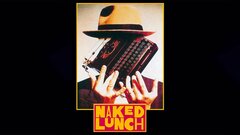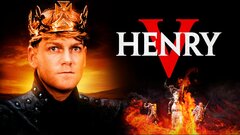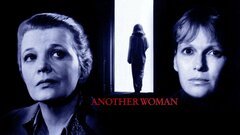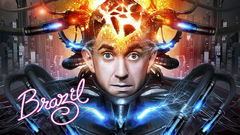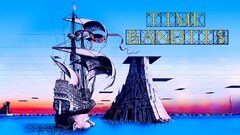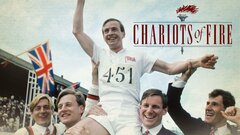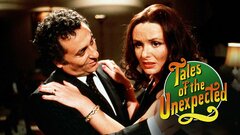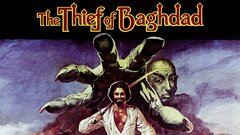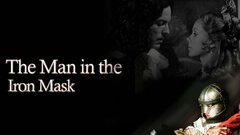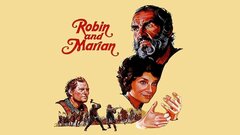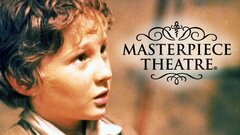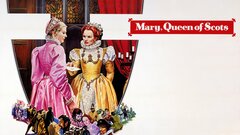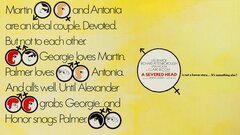Considering his late arrival to the screen, the more than 100 films and television credits amassed by actor Sir Ian Holm was all the more impressive, given the breadth and inarguable quality displayed in his body of work. Trained on the stages of London, the talented thespian was initially seen in relatively minor roles in such films as "The Bofors Gun" (1968) and "Nicholas and Alexandra" (1971).
The reprisal of his Tony-winning role in the film adaptation of Harold Pinter's "The Homecoming" (1973) boosted Holm's reputation among his peers, but did little to increase his modest exposure. His career in film reached an entirely new level, however, after he stunned audiences as a murderous android in the sci-fi horror classic "Alien" (1979), before endearing himself as a nurturing coach in "Chariots of Fire" (1981).
An amazing array of performances followed in such efforts as "Time Bandits" (1981), "Brazil" (1985), "Naked Lunch" (1991), "Big Night" (1996) and "The Sweet Hereafter" (1997), all of which were recognized when Holm was knighted by the Queen of England in 1998 for his services in drama. Nearly 40 years into his film career and still going strong, the actor delivered one of his more beloved portrayals as the hobbit Bilbo Baggins in Peter Jackson's "Lord of the Rings: The Fellowship of the Ring" (2001).
Born Ian Holm Cuthbert on Sept. 12, 1931 in Goodmayes, Essex, England, he was the son of Scottish parents James Harvey Cuthbert and Jean Wilson. Holm's parents worked together at West Ham Corporation Mental Hospital, where his mother was a nurse and his father wore many hats, including as a psychiatrist, the hospital's superintendant and an early innovator in the controversial technique of shock therapy treatment. Raised in London, Holm was educated at the nearby Chigwell School in Essex.
Drawn to acting and the theater after attending a production of "Les Misérables," he joined a local drama society in his teens, and later won admission to the revered Royal Academy of Dramatic Art in 1949. After a brief interruption necessitated by his mandatory National Service in the British Army - during which time he was stationed abroad in Austria - Holm returned to the academy only to depart once more when he participated in an acting tour of the United States.
Upon his return to the Royal Academy, the now well-traveled Holm quickly established himself as one of the more dependable students at the prestigious drama school. Following his graduation from the Academy, Holm made his debut at Stratford as a spear carrier in "Othello" (1954); thereafter, he became a fixture with the company, performing notably as Mutius opposite Laurence Olivier's "Titus Andronicus" and as the Fool to Charles Laughton's "King Lear." When the Stratford company became the Royal Shakespeare Company, Holm was one of the first long-term contract artists, excelling as "Richard III" and winning the London Evening Standard Award as Best Actor for his "Henry V."
After creating the character of Lenny in the original 1965 RSC production of Harold Pinter's "The Homecoming," Holm began picking up frequent work on British television, including a pair of notable turns on the anthology series "Mystery and Imagination" (ITV, 1966-1970) in the installments "The Body Snatcher" and "Frankenstein." Holm returned to the States, where he then reprised his role in "The Homecoming" with a Tony-winning Broadway debut in 1967. Later that year, he returned home to appear in an RSC production as Romeo, starring at an age when most actors look to play Macbeth.
By then, however, the film industry began taking notice of the talented stage actor. It was no surprise when Holm emerged as a solid film presence in his feature film debut as an Irish gunner in "The Bofors Gun" (1968), which earned him a British Film Academy Award for Best Supporting Actor. He then crossed the Atlantic to star alongside fellow British actors Alan Bates, Dirk Bogarde and David Warner in director John Frankenheimer's "The Fixer" (1968), a Russian prison drama adapted from the novel by Saul Bellow.
Although his short, stocky stature had not prevented him from landing leading roles at the RSC, Holm found himself typecast as a character actor for the big screen, though he quickly built a reputation for versatility and reliability. Much of his early film work was in period fare or in recurring collaborations with familiar directors such as Richard Attenborough and Richard Lester. Efforts from this period included "Oh! What a Lovely War" (1969), "Mary Queen of Scots" (1971), "Nicholas and Alexandra" (1971) and "Young Winston" (1972).
Holm reprised his Tony-winning part once more - this time for the screen - in director Peter Hall's feature film version of "The Homecoming" (1973). The chameleon-like actor then followed with a bravura portrayal of the great French conqueror in the nine-part British miniseries "Napoleon and Love" (ITV, 1974), co-starring Billie Whitelaw as Josephine. After a supporting role in the forgettable action-thriller "Juggernaut" (1974), Holm made his American TV debut in "The Rebel" (1975), an installment from a series of biopics covering various stages in the life of Benjamin Franklin.
He then appeared as the despicable King John opposite Sean Connery and Audrey Hepburn in "Robin and Marian" (1976), a romantic adventure chronicling the final days of the titular lovers. Following roles in Franco Zeffirelli's "Jesus of Nazareth" (NBC, 1977) and "The Man in the Iron Mask" (NBC, 1977), directed by Mike Newell, he played Nazi SS Chief Heinrich Himmler in yet another acclaimed television miniseries, "Holocaust" (NBC, 1978). It was, however, Holms' chilling portrayal of Ash, the duplicitous and coldly logical android in director Ridley Scott's "Alien" (1979) that would significantly raise his profile as an actor.
The harrowing scene in which Ash attempts to murder fellow crewmember Ripley (Sigourney Weaver) stunned audiences who were caught unprepared for the pent up brutality unleashed by his previously passive character. From there, Holm went on to earn a Best Supporting Actor Oscar nomination for his portrayal of a dedicated track coach in Hugh Hudson's "Chariots of Fire" (1981). That same year, the versatile actor again played Napoleon; this time as a hilariously selfish and petulant man-child in Terry Gilliam's comedic fantasy "Time Bandits" (1981).
Holm continued to take on a variety of diverse characters in a string of projects, which included a convincing turn as Nazi propaganda minister Dr. Joseph Goebbels in the miniseries "Inside the Third Reich" (ABC, 1982), a kind-hearted Belgian explorer who rescues and educates a half-savage boy in "Greystoke: The Legend of Tarzan, Lord of the Apes" (1984), and a blandly evil bureaucrat in Gilliam's "Brazil" (1985). After delivering a meticulous performance as the husband of a troubled woman (Gena Rowlands) in Woody Allen's "Another Woman" (1988), Holm returned to the familiar world of Shakespeare in Kenneth Branagh's film adaptation of "Henry V" (1989) and Zeffirelli's "Hamlet" (1990).
That same year, he delivered a charming rendition of Agatha Christie's famous sleuth, Hercule Poirot, in "Murder by the Book" (A&E, 1990), then remained in television to play Michelangelo's patron Lorenzo de Medici in "A Season of Giants" (TNT, 1991). Inhabiting similar absurdist territory as "Brazil," Holm also appeared in David Cronenberg's hallucinogenic "Naked Lunch" (1991), and Steven Soderbergh's stylized biopic-adaptation hybrid, "Kafka" (1991). Additionally, he starred as Pod opposite wife Penelope Wilton's Homily in the made-for-television version of "The Borrowers" (BBC, 1992), a miniseries based on British author Mary Norton's children's novels about a family of little people living under the floorboards of an English country home.
Holm reunited with his "Henry V" co-star Branagh for the Francis Ford Coppola-produced "Mary Shelley's Frankenstein" (1994), in which he played the father of the brilliant but misguided scientist (Branagh) whose experiments result in a hulking monstrosity (Robert De Niro). In a more historical period piece, he shone as the stern, albeit slightly dotty physician attempting to treat "The Madness of King George" (1994). He was deliciously nasty as Stanley Tucci and Tony Shalhoub's restaurateur rival in the charming dramedy "Big Night" (1996).
Always a prolific and reliable actor, Holm's career reached an entirely new level the following year when he appeared in no fewer than four notable feature films; an accomplishment he would repeat more than once in the years to come. He was the monk of an esoteric order in director Luc Besson's futuristic "The Fifth Element" (1997), then appeared as a tormented New York City cop in Sidney Lumet's crime drama "Night Falls on Manhattan" (1997). In Danny Boyle's "A Life Less Ordinary" (1997), he played a wealthy businessman whose daughter (Cameron Diaz) is kidnapped by a down-on-his-luck janitor (Ewan McGregor).
The gem of this banner year, however, was writer-director Atom Egoyan's "The Sweet Hereafter" (1997). Holm delivered a masterfully subtle performance as a big-city lawyer trying to convince the grieving parents of a small Canadian town to sue a bus company for the wrongful deaths of several of their children. Nearly universally hailed by critics, the role earned Holm a Genie Award for Best Actor, as well as one in the same category from the Toronto Film Critics Association. Although it was where his career had begun more than three decades earlier, Holm had performed little on stage since a debilitating case of stage fright during a production of Eugene O'Neill's "The Iceman Cometh" in 1976.
And despite his participation in a revival of Chekhov's "The Cherry Orchard" in 1979 and a 1993 mounting of Pinter's "Moonlight" - in a role written specifically for him by the playwright - Holm had not felt comfortable performing in front of a live audience for years. That all changed after he was asked by director Richard Eyre to take the lead role in his new U.K. stage production of Shakespeare's "King Lear" in 1997. The show and Holm's performance became both the talk of the London theater community, and, in what the actor himself cited as some of his finest work, "King Lear" (PBS, 1998) was taped for the enjoyment of audiences the world over.
After his hilariously bizarre turn as a thickly-accented scientist in Cronenberg's sci-fi nightmare "eXistenZ" (1999), he completely embodied the title role of actor-writer Tucci's "Joe Gould's Secret" (2000), beautifully capturing the dualities of his complex character's charm, intelligence, eccentricities and the multiple demons that haunted him. Other turn-of-the-millennium work included appearances opposite leading ladies Dame Judi Dench in "The Last of the Blonde Bombshells" (HBO, 2000), Sharon Stone in "Beautiful Joe" (2000), and the supernatural thriller "Bless the Child" (2000) opposite Kim Basinger.
A frequent narrator of television documentaries, Holm lent his voice to a retelling of George Orwell's classic parable "Animal Farm" (TNT, 1999), and to the animated biblical epic "The Miracle Maker" (ABC, 2000). He played Bonaparte for the third time in the romantic comedy "The Emperor's New Clothes" (2001), in addition to a turn as the maniacal royal physician Sir William Gull in "From Hell" (2001), the Hughes Brothers' stylish adaptation of Alan Moore's graphic novel about Jack the Ripper. The actor then undertook what would become one of his best-known roles, playing hobbit Bilbo Baggins in "Lord of the Rings: The Fellowship of the Ring" (2001) and "Lord of the Rings: The Return of the King" (2003), the bookend installments of the big-budget, epic trilogy.
Lovingly adapted from J.R.R. Tolkien's novels by filmmaker Peter Jackson, the trio of films became the biggest cinematic event of the early 21st Century. Holm next had a supporting role as a thoughtful climatologist in "The Day After Tomorrow" (2004), director Roland Emmerich's apocalyptic disaster film about the onslaught of a new ice age. He then gave a finely etched turn as an embittered, emotionally detached father in writer-director-star Zach Braff's lauded indie comedy-drama "Garden State" (2004).
Also that year, the ever-busy Holm played the befuddled Professor Fitz in "The Aviator," Martin Scorsese's biography of film maverick and airline tycoon Howard Hughes (Leonardo DiCaprio). In a change of pace, Holm joined writer-actor Amy Sedaris and comedian Stephen Colbert in the broad comedy "Strangers with Candy" (2005), a spin-off from Sedaris' Comedy Central television series, and also appeared opposite Nicholas Cage in "Lord of War" (2005) as a veteran arms dealer.
He returned to the world of animation, first providing voice work in the black and white futuristic conspiracy thriller "Renaissance" (2006), then as an unscrupulous restaurateur in Pixar's culinary comedy "Ratatouille" (2007). At this point, Holm curtailed his professional output and took some time away from the screen. That is, until he reprised his earlier role as an aged Bilbo in Jackson's much anticipated prequel, "The Hobbit: An Unexpected Journey" (2012) and "The Hobbit: There and Back Again" (2013).
By Bryce Coleman
